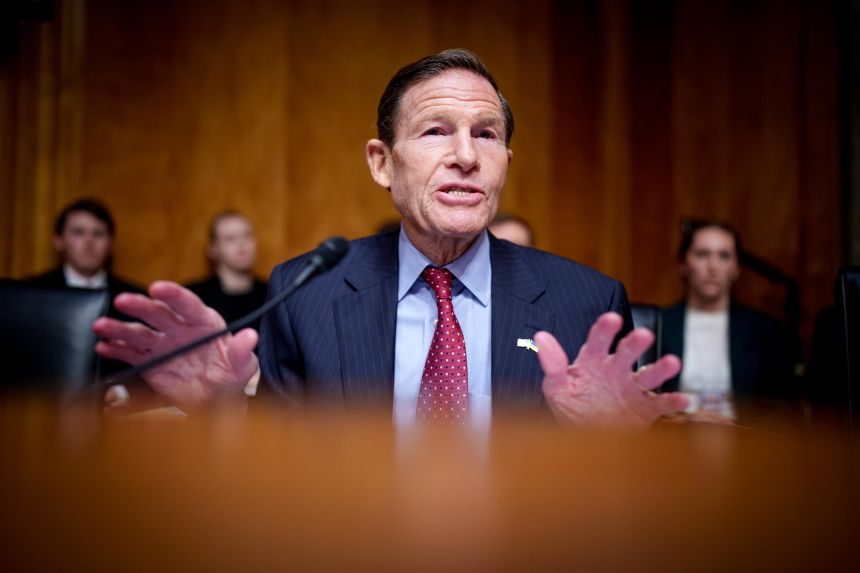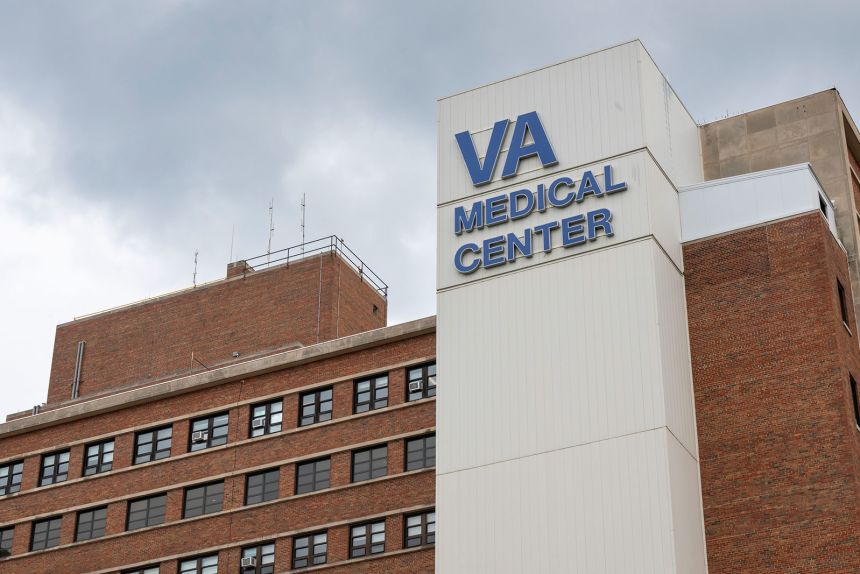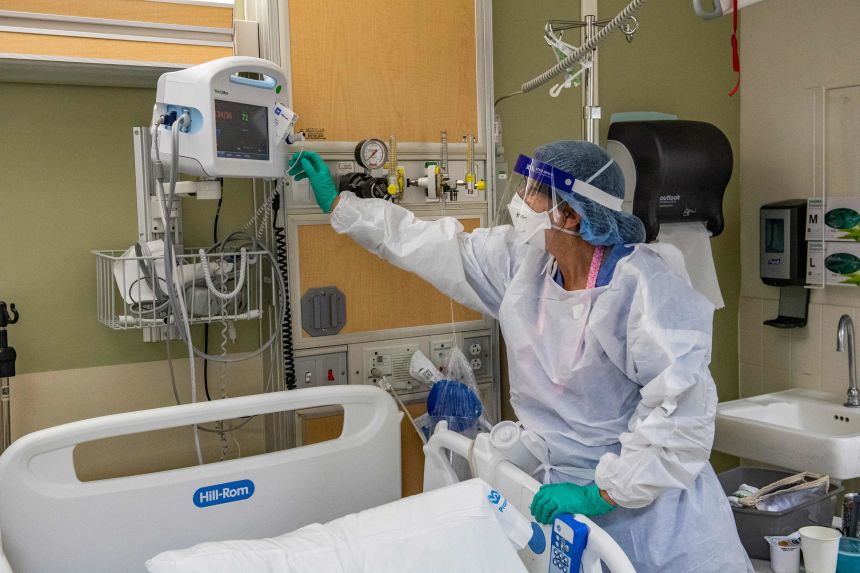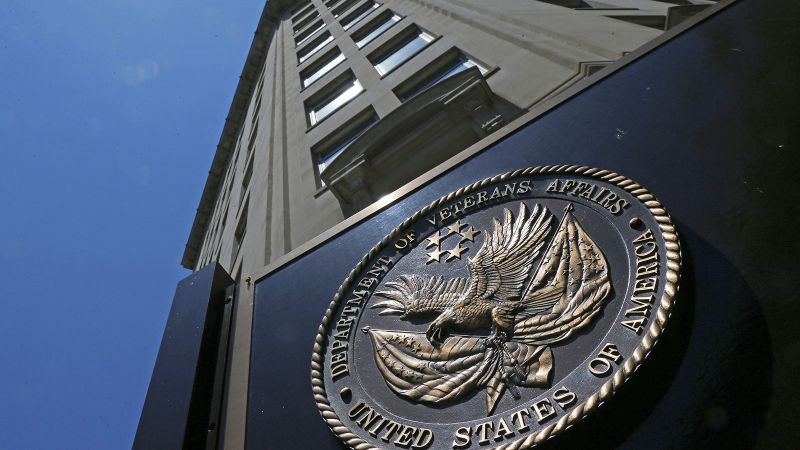Tweet
Email
Link
The Department of Veterans Affairs has transferred nearly $2 billion in funding for its health care system to pay for care from private providers, the agency told CNN.
The reallocation represents a transfer of nearly 5% of the VA’s total budget for money allocated to private care.
It is the largest single move to private sector health care the VA has made in several years, according to a congressional source familiar with the process. Unusually, it was made without a formal request for approval from Congress, as is the normal procedure followed by previous administrations, including during the first Trump administration.
The money shift comes amid a larger trend to increase private care options for veterans, which has drawn mixed results for the VA and the veterans it serves, and has added fuel to long simmering political tensions between Democrats and Republicans over management of the vast agency that provides health care to millions of American veterans.
Democrats called the $1.83 billion transfer a massive move away from core medical services provided by the VA, and warned that it would erode care and unravel the agency.
Richard Blumenthal, the ranking member of the Senate Veterans Affairs’ Committee, said he feared it would lead to “increasing costs and losing critical accountability.” Rep. Mark Takano, ranking member of the House Veterans’ Affairs Committee, called the move “restructuring by another name,” adding that the unusually large transfer “confirms what we have been warning about: (VA Secretary Doug Collins) is bleeding the VA from the inside out.” He warned that it was a step towards privatizing the VA.

The VA disputed the characterization of the move in funding as out of the ordinary and called the warnings about privatization of the VA, “a far-left canard that has been thoroughly debunked by the VA’s massive growth over the years.”
Ultimately, though, the changes in how the VA funds and shapes care delivery affect veterans, who have long had divided views on services.
Congress was notified of the VA’s intent to make the change in a letter to members in early July. The transfer occurred in early August, according to the VA.
“The transfer of funds will not have an adverse impact on Veterans’ care in VA health care facilities, and will improve Veterans’ care by expanding access through VHA’s community partners,” said VA Secretary Doug Collins in the letter, which was seen by CNN.
VHA refers to the Veterans Health Administration, the medical arm of the VA that oversees all of the agency’s hospitals and clinics and almost every aspect of veterans’ health care.
The funding move puts more money into a system that’s already in place in the VA, where VA doctors send some veteran patients to private facilities if the VA cannot offer certain services, or does not have facilities within certain distances of veterans’ homes. Once treated at a private facility, the private provider sends a bill to the VA for the service, and the VA pays the bill, explained Suzanne Gordon, Senior Policy Analyst with the Veterans Healthcare Policy Institute.
Peter Kasperowicz, the VA spokesman, called the transfer of funds “routine” and said that the Biden administration had made a similar shift of $1.5 billion.
However, critics in Congress noted that transfer had to do with a shortfall at the end of a fiscal year, and that any move of money over 1% of an appropriated category requires congressional approval, which was sought and given in the case of the Biden transfer.

In the case of the move this August, the VA did not seek approval. Asked why, Kasperowicz said Collins’s letter “should speak for itself”.
“VA-purchased care,” which civilian medical care for VA patients is known as, has grown as a proportion of the VA’s budget every year since 2015 and now accounts for about 25% of the VHA’s current fiscal year budget.
For some veterans, using private care could mean more choices in services or shorter wait times. “Better-funded community care means veterans get greater choice for the care they’ve earned,” said John Byrnes, Strategic Director for Concerned Veterans for America, in a statement to CNN.
A spokesperson for Rep. John Carter (R-Texas), the top Republican on the House Military Construction and Veterans Affairs Subcommittee on Appropriations, said: “These resources are needed to support care provided by community partners.” The move “will not affect VA care at VA facilities,” she added.
But critics – like Gordon – are worried about potential drawbacks. The private health care system in the US is already under strain, she says, and an influx of hundreds of thousands of veterans could add to the burden. “America is suffering from a shortage of primary care providers, which are absolutely key to providing care, and they are the backbone of the kind of care veterans get in the VA,” Gordon says.
Liam Rose, a health economist at Stanford University who receives grants from the VA, said: “The difficult part for VA is that as it becomes more generous with access to private providers, it sees increased costs both from individuals that would not have had access and from individuals that can now use VA as the payer for care they would have received otherwise.”

When CNN recently visited several Veterans’ halls near Washington, DC, and in central Virginia, opinions were divided over the quality of the VA system.
Chelbi Cole, a Navy veteran, said she has seen many benefits to being referred to private care. “It makes life easier. You can be seen more often. Definitely, if you have an immediate issue, you don’t have to wait,” she said.
However, she said she could see how the system could be confusing for veterans who are less tech-savvy, she said, for example, because the VA’s alerts for appointments with private providers are sometimes not clear on specifically where the patient should go.
Many veterans who spoke to CNN in recent months said that while the VA health care system can be somewhat unwieldy, and can take a frustratingly long time to be admitted into, once someone is in the system, the care is very good.
According to the Iraq and Afghanistan Veterans of America, a national non-profit group for veterans, less than a third – 31% – of its members who had experience with VA community care felt that private community care providers understood their medical needs, and only 14% said they had confidence that private and VA teams coordinated properly.

